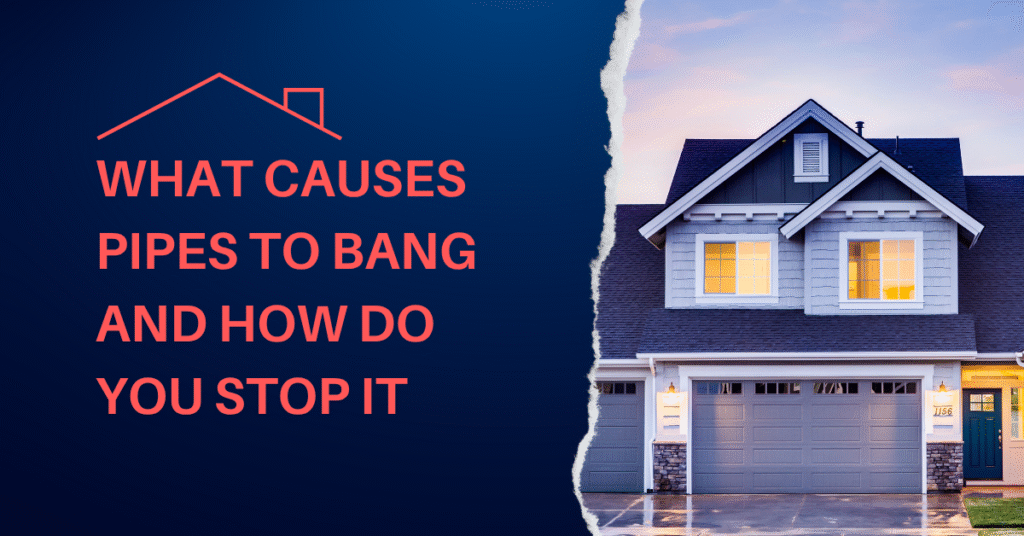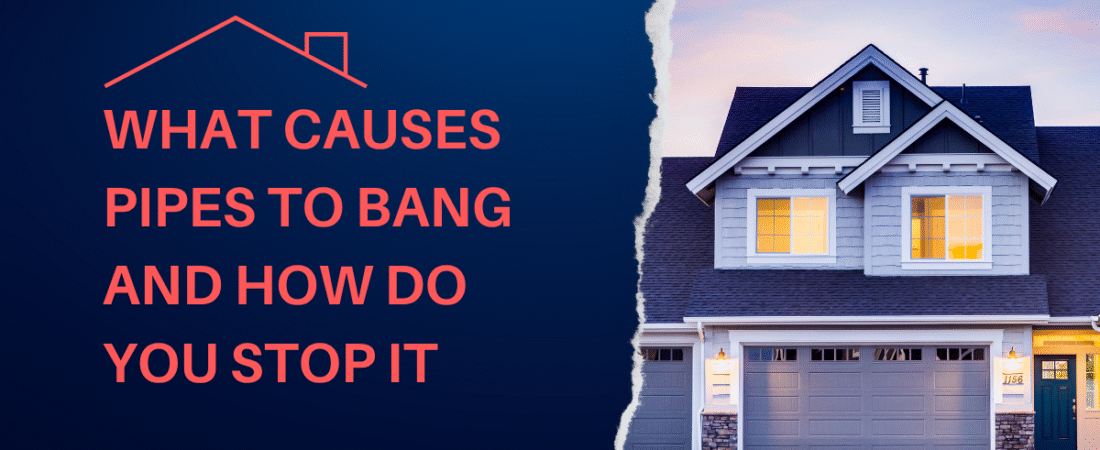1. Introduction
I once stood in a quiet house that did not feel quiet at all. Every time someone used a tap a sudden bang echoed through the walls. It sounded like someone struck metal with a hammer. The noise came without warning. It even happened in the middle of the night. The family who lived there felt worried. They thought a pipe would burst. They feared water damage. They feared a big repair bill. They did not know where to start.
This sound had a name. People called it pipe banging. It happened in old homes and new ones. It confused many owners. Most did not understand it. Some ignored it. Others panicked. The truth stayed simple. Pipe banging had a real cause. It had clear signs. It also had solutions that worked without guesswork.
2. Problem Section
Pipe banging came from shock inside water lines. When water flowed and stopped fast it created force. That force hit the walls of pipes. Metal hit metal. The sound travelled through walls. It made people think something broke. The problem became worse when water pressure stayed high. It also grew louder in long pipe runs.
Loose pipes caused more noise. Pipes that were not secured moved when water pushed through them. They struck wall studs or other pipes. The sound spread. Hot water lines created more noise because expansion and contraction made pipes shift. Over time friction removed pipe padding and increased movement.
The real problem came from delay. People ignored the noise. They turned up the television or lived with the sound. They thought it was harmless. In truth it damaged pipe joints slowly. It stressed valves. It weakened seals. It raised the risk of leaks. Small leaks led to big problems like mold, wood swelling and wall damage.

3. Agitate the Problem
Ignoring pipe banging created more trouble with time. Valves wore out. Pipes cracked. Pressure built behind closed taps. Homes developed hidden leaks behind walls. Repair costs increased fast. Insurance rarely covered slow damage because it came from neglect. Family comfort dropped. Sleep suffered. Peace disappeared. The noise brought stress into my daily routine.
The longer the problem stayed the worse it became. A simple fix turned into major work. What needed one part became a full system repair. People spent far more than needed because they waited. They lost control of a simple problem.
4. Solution Preview
Pipe banging could be stopped. It only required correct diagnosis and simple steps. Water pressure could be adjusted. Pipes could be secured. Special parts called arrestors could absorb shock. Valves could be replaced. Air chambers could be restored. These steps removed banging and protected the plumbing system.
This guide explained each cause and its fix. It used plain words. It avoided confusion. It solved the problem step by step.
5. Main Content
Water Hammer Effect
The most common cause of pipe banging came from something called a water hammer. When water flowed and then stopped quickly it hit a closed valve with force. The pressure wave created a knock. This happened often with washing machines and dishwashers because their valves shut fast.
Loose Pipes
Pipes ran through walls and ceilings. When they were not secured with proper clamps they moved. When the water ran they shook. When water stopped they struck wood or metal and made noise.
High Water Pressure
Water pressure that stayed too high damaged systems. It made the noise louder. It forced water to speed through pipes. It stressed every joint. Homes needed safe water pressure to prevent future leaks.
Air Chambers Full of Water
Older homes used air chambers to absorb shock. These chambers sometimes filled with water and lost purpose. When this happened no cushion remained. The sound of a water hammer grew.
Valve Wear
Old valves that did not close smoothly caused vibration. These vibrations travelled through pipes like sound through a drum. Replacing worn valves made systems quiet again.
6. Actionable Framework or Steps
A simple plan solved pipe banging in order.
First reduce water pressure to safe range.
Second, secure loose pipes inside visible areas.
Third, install water hammer arrestors on fast closing appliances.
Fourth drain system to restore air chambers in older homes.
Fifth replace worn valves to remove vibration.
Following this order solved the problem for most homes.
7. Case Study or Real Example
A small family home had loud pipe noise for two years. They ignored it until a leak stained the living room ceiling. A plumber checked the system. He measured the water pressure and found it too high. He installed a regulator and lowered pressure. He found loose hot water lines in the wall near the kitchen. He added clamps and rubber padding. He also installed two water hammer arrestors behind the washing machine. The banging stopped. The total repair cost stayed low. The family wished they fixed it earlier.
8. Pros and Cons
| Solution | Benefit | Limit |
| Lower pressure | Protects pipes | Needs gauge |
| Secure pipes | Reduces movement | Limited to access areas |
| Arrestors | Absorb shock | Needs installation |
| Air chambers | Simple fix | Works only in old systems |
| Valve change | Stops vibration | Requires plumbing skill |
9. Conclusion
Pipe banging sounded serious but had clear causes. It came from a water hammer, high pressure, loose pipes or worn parts. It made life stressful and caused damage. The longer it stayed the more expensive it became. The fix remained simple. Diagnose the cause then act. Peace returned to the home once the system stayed stable. Safety improved. Plumbing lasted longer. Comfort returned.
10. Call to Action
If pipes in your home made noise do not wait. Follow the steps in this guide. Lower pressure. Secure lines. Install arrestors. Protect your home. Quiet plumbing meant safe plumbing.
11. FAQ
Q Did banging pipes mean danger
A Yes because it caused long term damage
Q Could pressure alone cause noise
A Yes high pressure created water hammer
Q Could I fix it myself
A Some steps yes but some needed a plumber
Q Did arrestors work
A Yes they absorbed shock and reduced banging
Q Should I ignore the sound
A No it became worse over time
12. Internal and External Links
For routine home care read guides on leak prevention and safe pressure control. For detailed plumbing standards review building safety resources.

